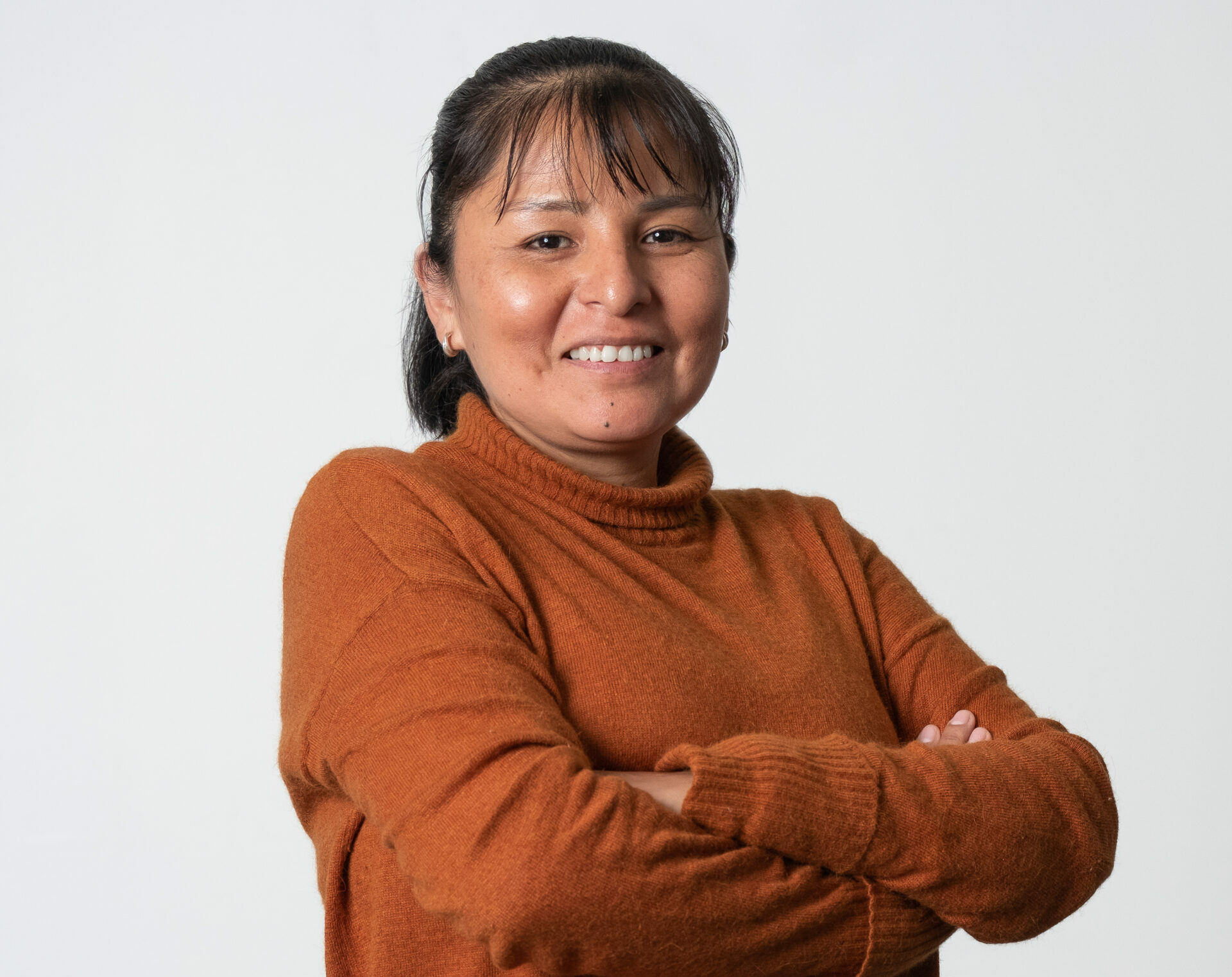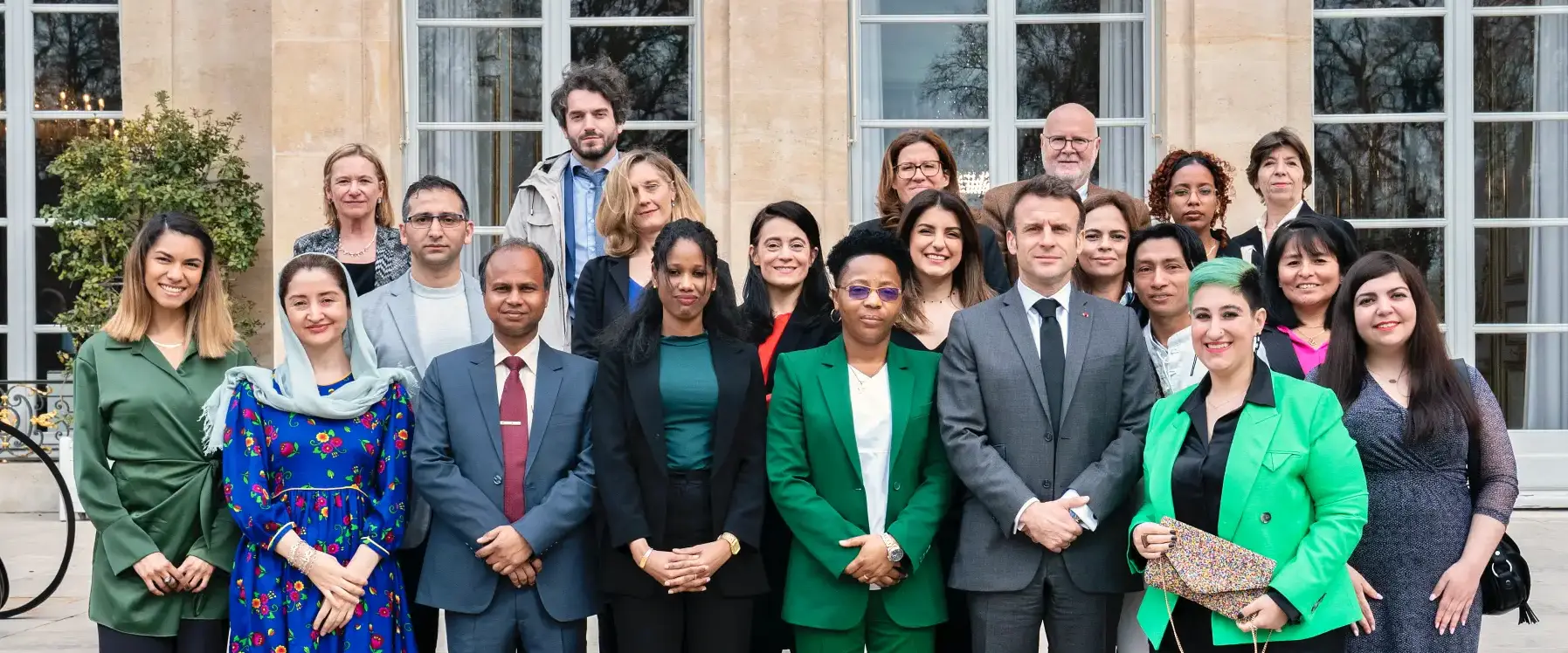
Description
Karin Ruth Anchelia Jesusi is a Peruvian human rights defender who fights for the rights of indigenous people. As an advisor to indigenous organizations, she mainly supports women and youth. Karin is one of the founders of the Warmis sin Fronteras collective, as well as a volunteer with the Association of Peruvian Women Affected by Forced Sterilizations (AMPAEF). She also works for the National Confederation of Peruvian Communities Affected by Mining (CONACAMI Peru), the National Organization of Andean and Amazonian Indigenous Women (ONAMIAP) and the Andean Coordination of Indigenous Organizations (CAOI).
Interview de Karin Ruth ANCHELIA JESUSI – 15 Juillet 2023
Could you please introduce yourself?
Je m’appelle Karin Ruth Anchelia Jesusi et je suis une défenseuse des droits humains péruvienne ; Je travaille avec des organisations pour les droits des peuples autochtones de tout le pays, et plus particulièrement pour l’autonomisation et l’accès aux droits des femmes et des filles péruviennes. Je travaille également pour les droits de la « Pacha Mama/Madre Tierra » et la lutte pour le respect de l’environnement en Amérique Latine.
Could you tell me more about your project and your association?
Je travaille à la défense des droits des populations autochtones, dans un contexte péruvien où le gouvernement durcit sa politique intérieure. Nous travaillons aussi à la protection de l’environnement (La Pachamama, la Madre Tierra). Au Pérou, les intérêts économiques (activités de déforestation, d’exploitation d’hydrocarbures et d’extraction minières) effectuées pour « l’intérêt national » vont à l’encontre de la défense de ces droits humains (droit des peuples indigènes, respect de la terre).
Mining concessions and extraction activities generate displacements of populations in violation of territorial rights, as well as environmental destruction. In addition, these activities have harmful effects such as air and water contamination, which have a major impact on indigenous populations.
How did the Marianne initiative help you make your project a reality? What activities did you find most useful during the program?
The Marianne initiative has really been an important source of collaboration with other players, as well as training through the mastery of new legal instruments, which will help me a lot in the future.
J’ai également et surtout eu l’occasion d’en apprendre plus sur la réalité en Europe et en France concernant la protection de l’environnement : il était très intéressant de constater et de comparer les conceptions européennes et celles des peuples indigènes péruviens entre le combat occidental de lutte pour la préservation de l’environnement et la lutte menée en Amérique Latine pour le « droit de la terre », avec une vision sacrée de la Pacha Mama : Je pense que ces deux visions ont beaucoup de points communs, il faut travailler en commun car l’objectif final est le même, préserver notre planète et son environnement, car sa dégradation nous affecte tous. Bien sûr, cela affecte plus les peuples indigènes qui vivent d’une activité agricole, non industrialisée : le plus petit changement climatique affecte directement notre mode de vie. C’est pour cela qu’il est si important de sensibiliser à cette cause au niveau international.
Have you kept in touch with the other program winners?
Of course we are! We're still in touch. I've remained particularly close to the other Spanish-speaking winners, the Latin American group. We plan to continue working together on projects to defend human rights in Latin America, on the theme of environmental protection, the right to land, but also enforced disappearances. I also kept in touch with prizewinners defending the same human rights as myself on other continents: For example, Lobe, who defends the right of local populations to access their land in Cameroon.
Generally speaking, we've all forged bonds of friendship and coordination that endure: right now, with the month of July marked by the return of many to their home countries, we're communicating a lot about our feelings and sensations in relation to the "return to reality" and project set-up.
Would you like to add anything?
Yes, I'd like to add that the Marianne initiative, which has been an invaluable experience for me and all the other prizewinners, must endure and not just be tied to the mandate of a single president. In my view, it needs to be transformed into a genuine state policy, as it provides real support for foreign and human rights activists. Even if France is currently facing a difficult domestic political context, this initiative is really useful and valuable for defending human rights abroad and in France.
Do you have a question? Please contact us!
Contact
